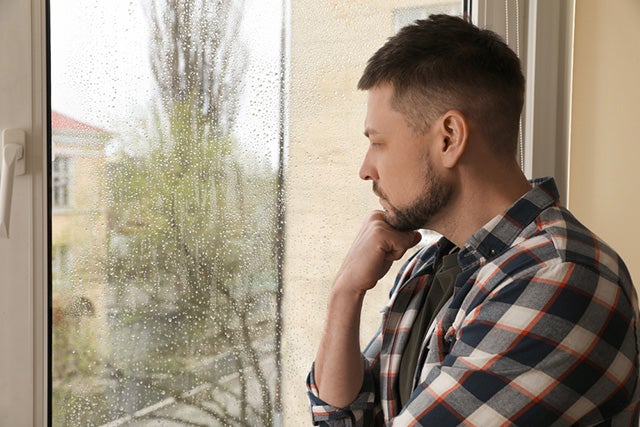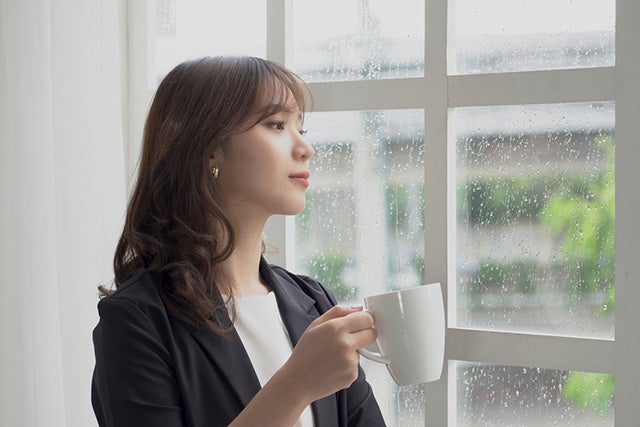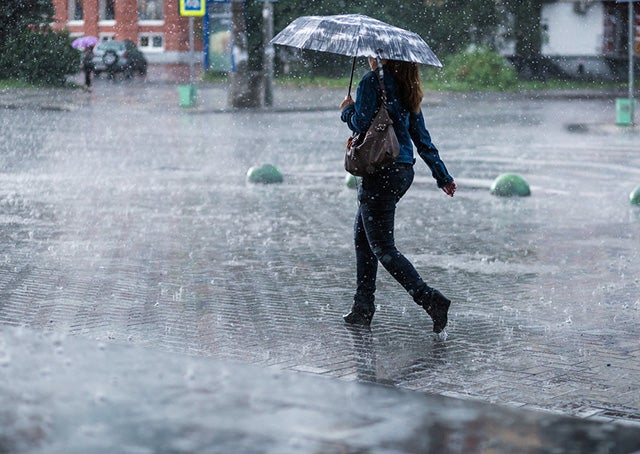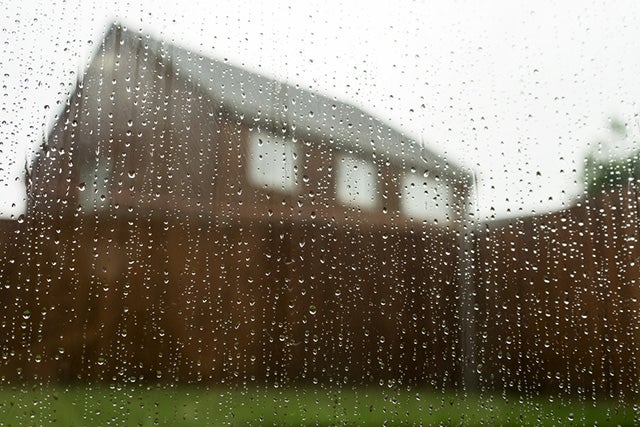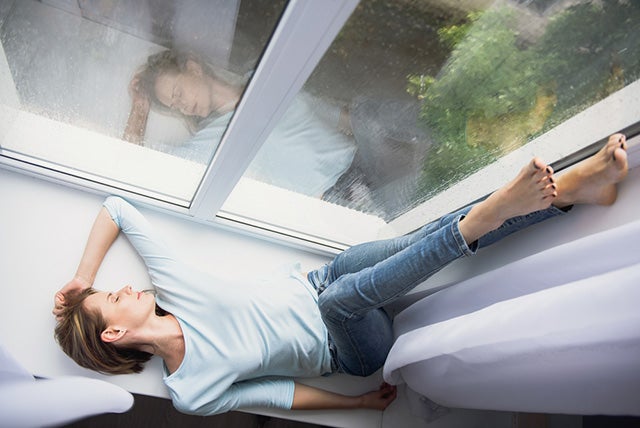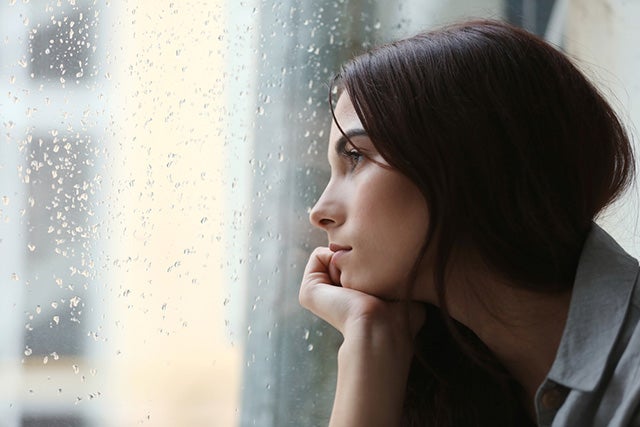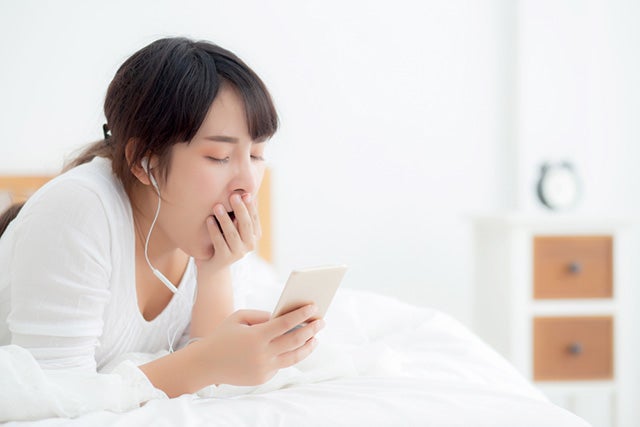Have you ever looked out the window on a rainy day, and the first thing that came to mind was, “boy, I could really use a nap right now”? We often associate rainy days with a quality afternoon nap. If you have wondered why rain makes you sleepy, there might be several scientific reasons behind that.
Light Conditions
There is an undeniable link between the weather and our emotional condition.
Much of it is due to the lack of ultraviolet (UV) light. Humans, like the majority of living things, require sunlight to flourish. Sunlight, which contains UVA and UVB rays, stimulates the creation of serotonin. Since it is the hormone that makes us joyful, it’s natural to feel down on overcast days.
Additionally, low light stimulates the production of melatonin by the pineal gland. Melatonin is responsible for regulating our circadian rhythm. Low light conditions associated with wet weather might result in an increase in melatonin levels, which can make you feel drowsy.
Another reason that wet weather makes you feel fatigued or “down” is the effect of barometric pressure. Reduced barometric pressure also reduces the amount of oxygen accessible in the air. Drowsiness is one of the earliest symptoms of oxygen deficiency.
Humidity Levels
A rainy day’s humidity also has a role. When it rains, the outside air becomes dense. As a result, the body’s homeostasis-maintaining mechanisms become more taxed.
Homeostasis is a term that refers to the condition of equilibrium between the various components of an organism or group. Sleep/wake homeostasis maintains a balance between our desire for sleep, referred to as a “sleep drive” or “sleep pressure,” and our requirement for wakefulness.
When we have been up for an extended period of time, our sleep drive signals us to sleep. We reestablish homeostasis during sleep, and our sleep urge declines. Finally, our requirement for attentiveness increases, signaling that it is time to awaken.
During rainy days, this can be exhausting, prompting many to seek an extra few minutes of sleep.
Rain Noises
Rain has this pitter-patter music that functions as a natural lullaby. The consistent pattern of rain simply soothes and relaxes us.
When people hear the rain, their brains unconsciously relax and produce alpha waves, which are extremely similar to the condition of the brain when they sleep.
The frequency range of rain is typically between 0 and 20 kHz, producing a very reassuring sound. However, if there is an unexpected sound of thunder in the midst of rain sounds, it might be stressful for people.
This is because rain produces a type of noise known as pink noise. This is similar to white noise but has a different energy distribution. Pink noise is a mixture of all the many frequencies that humans can hear, but its varied energy distribution across those frequencies makes it a more effective sleep aid.
Pink noise is produced by rain, wind, stepping on rusty leaves, and your own heartbeat. Pink noise’s tendency to suppress brainwaves is what makes it so beneficial as a potential sleep aid, according to a 2012 study.
Possible Activities
When it rains, people’s activities are restricted. Numerous outdoor exercises are impossible to perform. Sleeping is usually an excellent option for folks who have nothing to do.
Everybody enjoys being in a comfortable state, and sleeping is a form of enjoyment.
Even while people can fall asleep quickly on a rainy day, this does not guarantee that they will have a good night’s sleep, as rain reduces the amount of oxygen in the air.
Individuals who awaken from prolonged sleep will still feel weak and tired. Additionally, people spend a significantly longer time getting out of bed when it rains.
Does Rain Make You Sleep Better?
Because your brain continues to analyze sounds while you sleep, varied noises can affect your ability to sleep effectively.
Certain stimuli, such as honking automobiles and barking dogs, can excite the brain and cause insomnia. Other sounds can help you sleep better by relaxing your brain.
Pink noise may have sleep-inducing properties. In a modest 2012 study published in the Journal of Theoretical Biology, researchers discovered that constant pink noise lowers brain waves, resulting in more stable sleep.
There also seems to be a significant correlation between pink noise and deep sleep. Deep sleep is beneficial for memory and helps you wake up feeling refreshed.
However, there is a dearth of scientific studies on pink noise. There is additional evidence showing the beneficial effects of white noise on sleep. Additional research is needed to determine how pink noise can improve sleep quality and duration.
How to Mimic Rain’s Pink Noise
You can experiment with pink noise for sleep on your phone, tablet, laptop, or PC. Pink noise tracks are also available on streaming services such as YouTube.
Additionally, smartphone apps provide recordings of various noise colors.
Certain sound machines produce pink noise. Before purchasing a machine, ensure that it produces the sounds you require.
The optimal approach to employing pink noise is entirely subjective. For instance, you may find that earbuds are more pleasant than headphones. Others may prefer headphones or pink noise generated by a computer.
Additionally, you may need to experiment with the volume to determine what works best for you.
Final Thoughts
While you now understand why rain makes you sleepy, you may still wonder how to counteract this impact. The answer is straightforward: remain occupied. Whether physical or mental, maintaining an active lifestyle will help you overcome boredom, keep your mind occupied, and increase serotonin levels. Check out our guide to sleep cycle apps for more great tips like this!
Photo credit: Sergey Zaykov/Shutterstock; New Africa/Shutterstock;
Suwan Banjongpian/Shutterstock; Olena Yakobchuk/Shutterstock;
Africa Studio/Shutterstock; NT_Studio/Shutterstock
